The 80-year journey of Vietnamese education is a series of transformations, associated with important historical milestones and landmark reforms.
Milestones and historical reforms
People's Teacher, Dr. Dang Huynh Mai - former Party Secretary, Deputy Minister of Education and Training, commented: Over the past 80 years since the successful August Revolution in 1945, Vietnam's education and training have achieved important achievements, contributing significantly to the cause of building and defending the Fatherland.
One of the greatest achievements was the eradication of illiteracy. Immediately after the August Revolution, with 95% of the population illiterate, the “Popular Education” movement was widely launched, quickly helping millions of people learn to read and write. This was an important premise for building a learning society.
Second, successfully implementing the program of universalizing preschool education for 5-year-old children, universalizing primary and secondary education. This has raised the intellectual level of the people, creating a solid foundation for the country's development. The school system has developed rapidly, covering from urban to rural, mountainous, remote areas, ensuring the right to education for all people.
Third, the quality of education and training has been gradually improved. Fundamental and comprehensive innovation in education and training has been carried out since 2013. Policies always focus on innovation in programs, teaching methods, and assessment, aiming at developing learners' capacity and qualities.
Increasing attention is paid to training high-quality human resources to meet the demands of the labor market and international integration. Many educational institutions have been proactive in innovation, linking training with scientific research and practical needs of businesses.
Fourth, the team of teachers and educational administrators is constantly growing in quantity and quality. The qualifications of teachers are increasingly improved. Many training and capacity building programs are implemented. The dedication and enthusiasm of the teaching staff is the key factor for the achievements of the industry.
In particular, recently, the Ministry of Education and Training has advised the National Assembly to pass the Law on Teachers, making a particularly important contribution to ensuring the State's policy on developing our country's teaching staff.
Fifth, Vietnamese education has always paid attention to ensuring social equity in access to education, especially for vulnerable groups such as ethnic minorities, rural workers, people with disabilities and policy beneficiaries. Many policies to support students in difficult circumstances have been implemented, helping them have the opportunity to study.
Sixth, our country's education has proactively integrated internationally, attracting advanced training programs and exchanging students and lecturers. The position of Vietnamese education in the international arena has gradually improved and has been highly appreciated by many international organizations.
With the orientation of fundamental and comprehensive innovation and the deep concern of the Party and State, along with Ho Chi Minh's thought of "training the revolutionary generation for the next generation", Vietnamese education must probably continue to make efforts to overcome challenges, aiming at the goal of building a high-quality, modern education system, meeting the requirements of sustainable development of the country in the era of rising up of the times.
Especially when our State exempts tuition fees for students, the requirements for human resources as well as the quality of teaching and education for the young generation must meet high requirements on the basis of Resolution No. 57-NQ/TW dated December 22, 2024 of the Politburo on breakthroughs in science and technology development, innovation and national digital transformation", People's Teacher, Dr. Dang Huynh Mai shared.
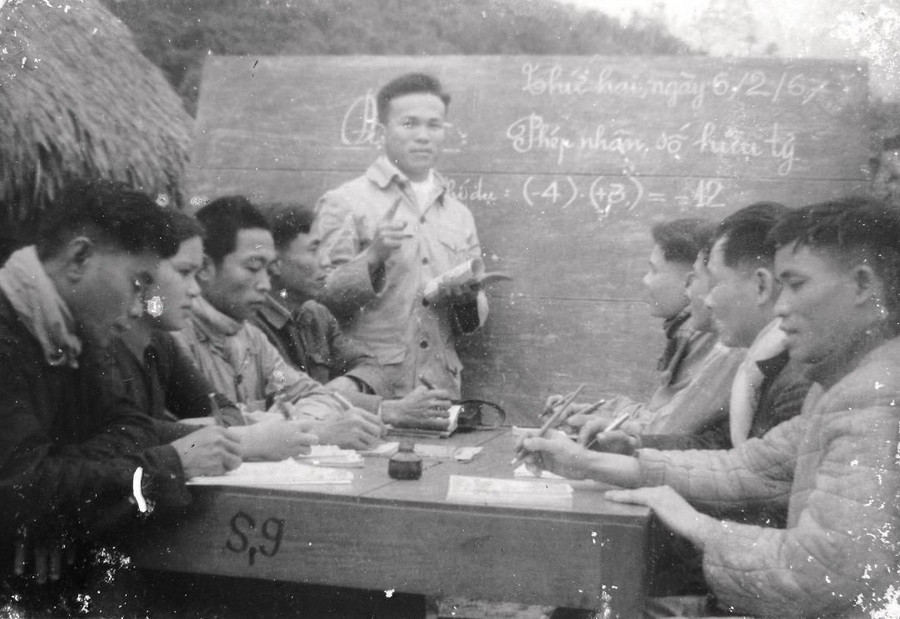
Imprints of innovation in higher education
Sharing about 80 years of revolutionary education in Vietnam, Mr. Le Viet Khuyen - Vice President of the Association of Vietnamese Universities and Colleges, former Deputy Director of the Department of Higher Education, especially mentioned the period 1987 - 1997 with the role of pioneering and laying the foundation for the innovation of higher education in our country up to now. "The education sector has every right to be proud of what higher education has done under the leadership of Minister, Professor Tran Hong Quan in this period", Mr. Le Viet Khuyen commented.
As someone who participated early in the reform of Vietnam's higher education, under the direct leadership of Professor Tran Hong Quan, then Minister of Universities, Vocational Secondary Schools and Vocational Training, Mr. Le Viet Khuyen recalls:
In the context of the severe economic crisis in the late 70s and early 80s of the last century, education, especially higher and professional education, was the most severely affected sector. Training quotas of schools were cut, even completely cut; many schools faced the risk of not having enough money to pay their teaching staff and no students.
Graduates, though few in number, have difficulty finding work assignments. The lives of lecturers are difficult in every way. School facilities are seriously degraded… As a result, many higher education and vocational institutions have been closed or are barely operating.
When Vietnam's higher and professional education was on the brink of the abyss, opportunities opened up with the Resolution of the 6th National Party Congress. In the light of this Resolution and many subsequent resolutions, our country's higher education system has implemented many strong breakthrough innovations, escaped the crisis and stagnation, created many important achievements, and created the premise for the development of the higher education system later. Some of the most outstanding achievements in this period can be mentioned as:
Transforming the Vietnamese higher education system from the old Soviet model (only suitable for a centrally planned economy) to a new model, suitable for a multi-sector economy, international integration. According to Decree 90-CP of the Prime Minister on the framework structure of the national education system and the diploma system (November 1993), at the university level there are 4 levels: College (3 years), Bachelor (4 years or more), Master and Doctorate.
Innovate the goals, content and methods of university training. Restructure the training content at university level according to the liberal education model. Implement a new training process (university training in 2 phases) and 7 general university education programs.
The reorganization of the university and college network was also carried out during this period. Accordingly, in compliance with Directive 287/CT of the Chairman of the Council of Ministers, the Ministry of Education and Training advocated the reorganization of the university and college network towards the formation of three basic types of schools: multidisciplinary universities, specialized universities/colleges and community colleges/local universities.
Focus on building a number of high-quality centers (schools, majors) on par with high levels in the region, as a pilot, creating the premise to expand the number of high-quality schools and majors.
Transferring qualified vocational secondary schools to colleges, setting the stage for student streaming in higher education. Policy changes on teacher training, aiming to improve the quality of teacher training and solve the difficult problem of meeting the demand for teachers in the general education system were also outstanding achievements in the period 1987 - 1997.
In addition, an important milestone that must be mentioned in this period is the laying of the foundation for the formation of a non-public university education system. Resolution 4 of the 7th Central Committee (1993) on continuing to innovate the education and training career recognized the existence of private, semi-public and private universities that had never existed before in Vietnam, with the intention that this school system would supplement the existing public university system to satisfy the people's high demand for places to study.
During the tenure of Minister Tran Hong Quan, the first regulations on private, semi-public and private universities were successively developed and promulgated, creating a legal basis for the establishment of a series of non-public universities. Schools affiliated with large state-owned economic groups were also established for the first time under the direction of Minister Tran Hong Quan.
Talking about university education in the period 1987 - 1997, Mr. Le Viet Khuyen also mentioned the achievements in maintaining and expanding the scale of university training; implementing the democratization process in school activities, and strengthening the autonomy of schools in terms of management.
“The implementation of the election of the Principal right from the first years of innovation is considered the most powerful and profound change in school activities. Along with that is the policy of eliminating the appointment of heads without a term, implementing the tenure of the Principal position with a maximum limit on holding the position to create conditions for the dynamic and creative young generation to inherit and successively participate in school management.
The selection of the Principal is decided by the masses during the survey and consideration of voters. School management staff will gradually switch to receiving allowances and all key school management staff will receive professional salary scales. A number of schools after the election have had profound and comprehensive changes that have been recognized by society" - sharing this, Mr. Le Viet Khuyen once again affirmed: The period 1987 - 1997 really played a pioneering role, laying the foundation for the innovation of higher education in our country up to now.

Constantly increasing quality and quantity
In 1945, when the Democratic Republic of Vietnam was born, the country faced numerous difficulties, with more than 90% of the population illiterate. Associate Professor Dr. Nguyen Quoc Bao - senior lecturer, former Head of the Ho Chi Minh Thought Department (Academy of Journalism and Propaganda) realized that in that context, the Government identified eradicating illiteracy and reviving education as urgent tasks. Therefore, after the success of the August Revolution, the Party and President Ho Chi Minh advocated building a new education system, first of all, eradicating illiteracy for the people.
During the period 1945 - 1954, education shifted to "resistance education", classes were opened in the war zones, the curriculum was linked to the practice of resistance, training a generation of "resistance citizens". By 1954 - 1975, education in the North was comprehensively reformed in the direction of socialism, emphasizing the principle of "learning goes hand in hand with practice, theory is closely linked to practice". Despite the fierce war, schools remained stable, the "Two Goods" movement spread, and the university system developed rapidly.
Nowadays, education and training are developing strongly, constantly increasing both quality and quantity. In the innovation, new models have appeared with the same training goals. Children of the right age are universalized to lower secondary education. Most young people have completed high school. There are nearly 400 universities and colleges with millions of students, thousands of masters, doctors, associate professors, and professors.
It can be said that the people's intellectual level has made great strides. The system of vocational secondary schools and long-term vocational training has developed strongly, attracting a large number of students, young workers in rural areas, and ethnic minorities, linking vocational training with job creation, hunger eradication and poverty reduction.
A modern, high-quality, and steadily developing education system will provide the country with a knowledgeable workforce, which is a great driving force for the country to progress and develop continuously. The current economic race between countries in the world is essentially a race in science, technology, education and training. It is also a race to improve the quality of human resources.
In particular, in the trend of global integration, along with the explosion of the 4.0 revolution, promoting the leading important role of education and training in developing human resources, especially high-quality human resources to meet the requirements of sustainable development of all nations, including Vietnam, is becoming more urgent.
During its leadership, our Party has paid great attention to education and training, development, and improvement of human resource quality, especially high-quality human resources. It has focused on training people in the direction of global citizens. "It can be affirmed that, under the leadership of the Party, over the years, education and training in our country have clearly demonstrated their role in developing human resources, meeting the requirements of businesses and markets, and the requirements of national development," Associate Professor, Dr. Nguyen Quoc Bao emphasized.
Acknowledging that the education system in our country is quite complete from preschool to post-graduate level, Ms. Chau Quynh Dao - National Assembly delegate of An Giang province affirmed that most villages, communes and wards have schools and classes. Basically, the education system in our country has met the learning needs of the people. Up to now, the majority of people of school age have been able to go to school. This shows the attention and leadership of the Party and State, as well as the great efforts of the entire people for the cause of developing education in the country.
“In the coming years, the education sector will continue to face many opportunities and challenges, but with the attention of the Party and the State, the efforts of the sector, and care for the entire population, I believe that our country's education and training career will inherit and promote the achievements of 80 years; soon overcome existing shortcomings, to reap more success in the career of "growing people" to accompany the country into the era of national development.
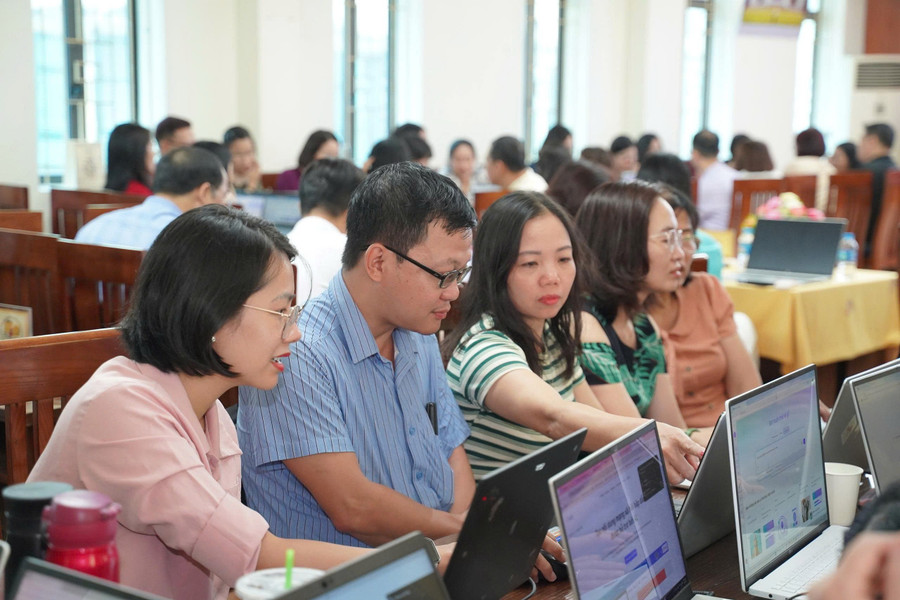
Laying the foundation for development in the new century
One of the research groups of the Vietnam Institute of Educational Sciences participating in writing the book “80 years of Vietnamese Education”, experts Dao Van Toan, Duong Quang Ngoc, Ha Thi Thuy, Phan Thi Thu, Nguyen Thi Viet Ha - commented: The period 1986 - 2000 was a historical period with many fluctuations, witnessing a strong transformation of the country and Vietnamese education.
From the crisis, the renovation process led by the Party has helped the country overcome difficulties, recover and develop rapidly, creating a foundation for development in the new century. Along with the country's renovation process, the education sector has made efforts to innovate, not only overcoming the crisis but also making important steps forward, playing an increasingly important role in the country's construction and development.
The 6th Party Congress (December 1986) pointed out weaknesses and set out the need for innovation in thinking, considering education an inseparable part of the general innovation process. The Congress also established the motto "The State and the people work together", paving the way for the socialization of education.
Next, Resolution 6 of the 6th Central Committee (1989) proposed a policy of diversifying training forms and mobilizing social resources, expanding the types of non-public schools. The educational financial mechanism gradually shifted from "full state subsidy" to a model of mobilizing many sources, allowing tuition fees.
By the 7th Party Congress (1991), the educational innovation policy was affirmed at a new height: Education and training were considered the "top national policy" with the task of "Improving people's knowledge, training human resources, nurturing talents", investing in education is investing in development. Continuing that policy, the 8th Party Congress (1996) and Resolution 2 of the 8th Central Committee (1996) clearly defined the direction of human resource development, meeting the requirements of industrialization and modernization; at the same time, affirming the socialization of education, diversifying types of education and forms of training.
The Party's policies have been institutionalized through laws such as the Law on Universal Primary Education (1991), especially the Law on Education (1998), creating a relatively complete and transparent legal framework for the entire system.
During the period 1996 - 2000, education shifted its focus from solving fundamental problems to improving the quality of human resources, serving industrialization and modernization. The number of students grew strongly, especially at the university level. The focus of universalization was shifted from primary to secondary education, meeting the country's new development requirements.
Emphasizing the achievements, Mr. Duong Quang Ngoc shared that in the period 1986 - 2000, the Vietnamese education system has achieved fundamental achievements: Firstly, the legal framework and educational institutions have been gradually improved. This is a fundamental achievement, with the promulgation of important legal documents such as the Law on Universal Primary Education (1991) and the peak is the Law on Education (1998). These documents have transformed the education system from operating based on directives to operating within a stable and transparent legal framework.
Second, the national education system was restructured and developed synchronously. The education system was strongly restructured, from the unification of the management apparatus (establishment of the Ministry of Education and Training), standardization of the 12-year general education system, to the formation of a connecting structure from preschool to post-graduate level.
Third, complete universal primary education and eliminate illiteracy by 2000, and implement universal lower secondary education.
Fourth, the educational facilities and environment have been gradually modernized. Through national target programs such as: School consolidation, tens of thousands of temporary classrooms have been replaced by solid structures. Thereby, contributing to significantly improving teaching and learning conditions, especially in difficult areas.
Fifth, the team of teachers and educational administrators has developed in both quantity and quality: The team of teachers has increased sharply in quantity to meet the needs of expansion. Quality has been gradually improved through standardization programs, and teachers' lives have gradually improved thanks to new policies.
Sixth, success in socializing education and diversifying types and forms of education. The policy of socialization has broken the monopoly of the public school system, allowing private, semi-public and private schools to emerge and develop. This has mobilized enormous social resources and created a more dynamic and diverse educational environment. On the other hand, training methods have been expanded in a flexible direction, meeting human resource needs such as distance learning...
Seventh, initial innovation in content, programs and educational methods: The industry has made initial changes in innovating the program in the direction of "basic, modern, practical", applying active teaching methods, focusing on students.
Eighth, promoting international cooperation in education: In the context of the country's opening up, the education sector has proactively expanded cooperation with international organizations (WB, UNESCO, UNICEF...), attracting important financial and technical resources for development.
The research team found that, in the period 1986 - 2000, along with the country's renovation, the education sector made efforts to overcome the crisis, recover and develop, and achieve great achievements. Although there were still limitations and difficulties, the achievements in expanding the scale, perfecting the institutions and promoting socialization, diversifying types, and international integration have created a solid premise for the Vietnamese education sector to continue to carry out more comprehensive reforms in the 21st century.
Over the past 80 years, Vietnam's education has achieved important achievements. However, People's Teacher, Dr. Dang Huynh Mai realized that the education sector may face many challenges such as: imbalance in quality between regions, problems of student streaming after secondary school, uneven quality of university education, and the situation of "too many teachers and not enough workers" in some professions.
Source: https://giaoducthoidai.vn/80-nam-giao-duc-viet-nam-nhung-buoc-tien-dang-tu-hao-post746714.html



![[Photo] Prime Minister Pham Minh Chinh attends the World Congress of the International Federation of Freight Forwarders and Transport Associations - FIATA](https://vphoto.vietnam.vn/thumb/1200x675/vietnam/resource/IMAGE/2025/10/08/1759936077106_dsc-0434-jpg.webp)


![[Photo] Prime Minister Pham Minh Chinh inspects and directs the work of overcoming the consequences of floods after the storm in Thai Nguyen](https://vphoto.vietnam.vn/thumb/1200x675/vietnam/resource/IMAGE/2025/10/08/1759930075451_dsc-9441-jpg.webp)


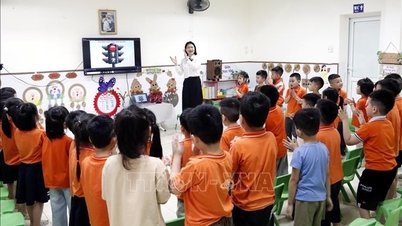

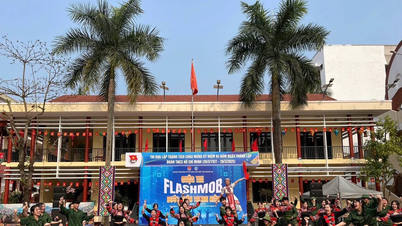


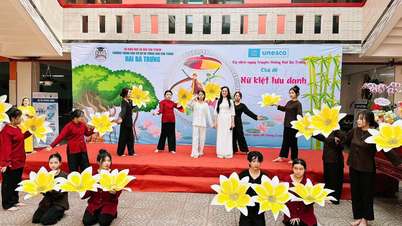




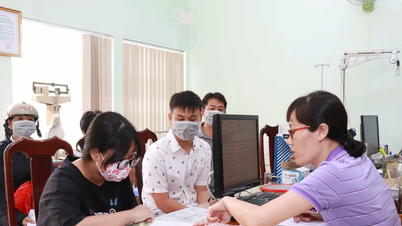

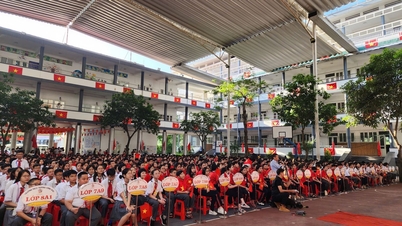


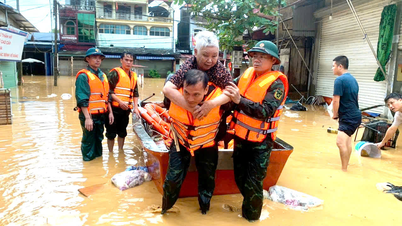






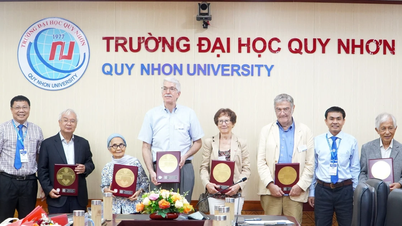
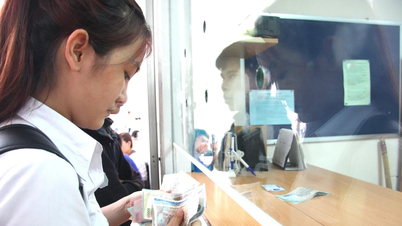
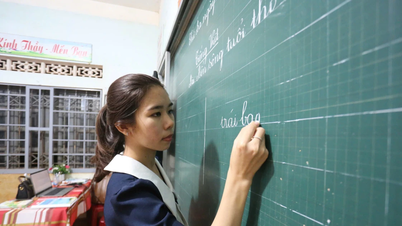

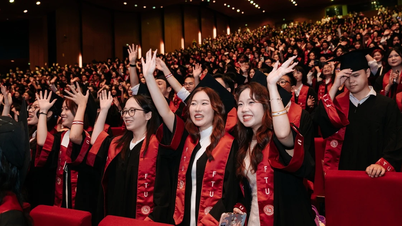
![[Photo] Closing of the 13th Conference of the 13th Party Central Committee](https://vphoto.vietnam.vn/thumb/1200x675/vietnam/resource/IMAGE/2025/10/08/1759893763535_ndo_br_a3-bnd-2504-jpg.webp)


























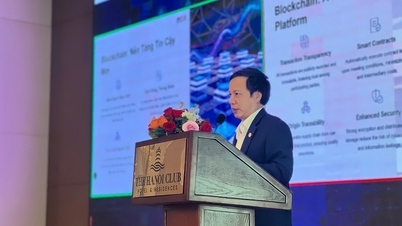







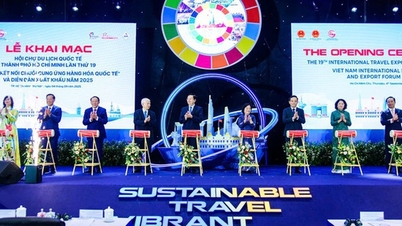










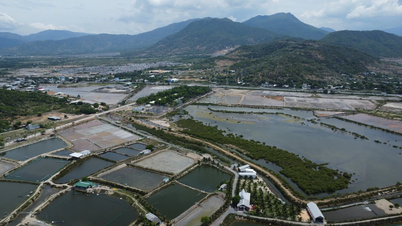


















Comment (0)